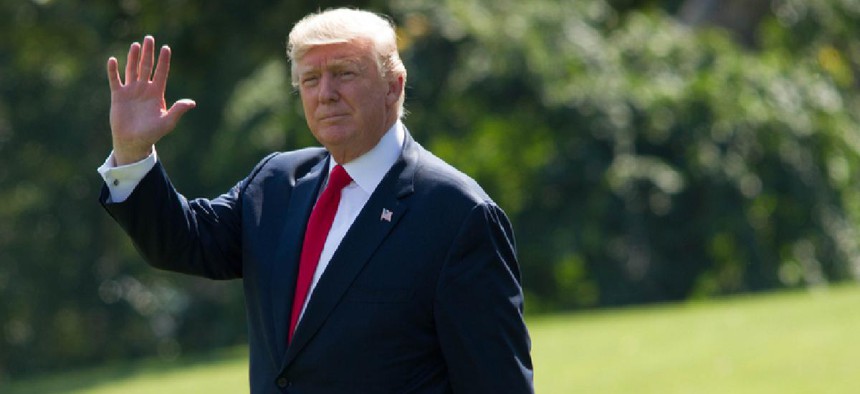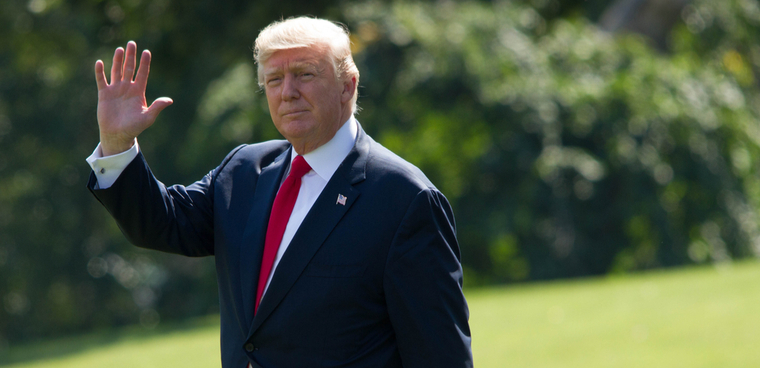Trump freezes federal pay for 2019

Consistent with his fiscal year 2019 budget proposal, President Donald Trump announced plans to freeze federal pay. But Congress will have the final say over whether feds get a pay raise.

President Donald Trump announced plans to freeze federal pay in fiscal year 2019.
In an Aug. 30 letter to congressional leaders, Trump opted not to extend a pay raise to civilian employees, consistent with the White House's fiscal year 2019 budget proposal. The budget also proposed bumping military pay by 2.6 percent.
Feds were set to receive a 2.1 percent pay raise in January, along with a locality pay increase. Now neither of those hikes will take effect.
"In light of our nation's fiscal situation, federal employee pay must be performance-based, and aligned strategically toward recruiting, retaining, and rewarding high-performing federal employees and those with critical skill sets," the letter reads. "Across-the-board pay increases and locality pay increases, in particular, have long-term fixed costs, yet fail to address existing pay disparities or target mission critical recruitment and retention goals."
In the letter, Trump said the pay freeze "will not materially affect our ability to attract and retain a well‑qualified federal workforce."
Last year, the White House announced a federal pay raise of 1.9 percent for civilian employees and a 2.1 percent pay raise for the military. To help offset the pay freeze, the administration has pushed for a $1 billion workforce fund for incentive-based pay, recruiting and retaining employees.
Congress can still choose to give federal employees a raise. The Senate already cleared a 1.9 percent pay raise for civilian employees for next year.
Sen. Patrick Leahy (D-Vt.) pointed out the Senate passed this pay raise by a 96 to 2 margin, and noted the Senate "has a long history of supporting the federal work force by providing competitive pay, which attracts and retains talented women and men to" federal service.
Rep. Gerry Connolly (D-Va.), who represents a fed-heavy district, called the decision an attempt "to balance the budget on the backs of federal workers" and "mismanagement."
"We have a government to run, services to deliver, and people to care for," Connolly said. "We do not do any of that without a motivated and talented federal workforce."
Federal unions also pushed back against the pay freeze, and presidents of both the American Federation of Government Employees and the National Treasury Employees Union urged Congress to uphold the pay raise.
J. David Cox, president of AFGE, said the Senate bill "would help prevent workers from falling further behind next year and help federal agencies recruit and retain the high-caliber workforce that the public expects and deserves."
Tony Reardon, president of NTEU, added, "[t]he call for a pay freeze for federal employees is especially painful given inflation and with economists predicting that private sector professional salaries will grow by an average of 3 percent this year."


